August 31, 2017 •
San Francisco Ethics Commission to Consider Pay-to-Play Ordinance
At its August 28, 2017, meeting, the San Francisco Ethics Commission discussed the adoption of the 2017 San Francisco Anti-Corruption and Accountability Ordinance to revise city campaign and government conduct laws. The ordinance would create a series of new rules […]
 At its August 28, 2017, meeting, the San Francisco Ethics Commission discussed the adoption of the 2017 San Francisco Anti-Corruption and Accountability Ordinance to revise city campaign and government conduct laws.
At its August 28, 2017, meeting, the San Francisco Ethics Commission discussed the adoption of the 2017 San Francisco Anti-Corruption and Accountability Ordinance to revise city campaign and government conduct laws.
The ordinance would create a series of new rules to reduce the incidence of pay-to-play politics by increasing the applicability of current pay-to-play laws to encompass more parties seeking contracts with the city. The ordinance would also create new limits and disclosure requirements on contributions and behested payments.
The commission voted 4-0 to continue the matter to its next meeting on September 25, 2017.
August 28, 2017 •
FINRA Proposes Pay-to-Play Rules for Capital Acquisition Brokers
The Financial Industry Regulatory Authority (FINRA) has filed a proposed rule change with the Securities and Exchange Commission (SEC) to expand its brand-new pay-to-play rules to cover capital acquisition brokers (CAB). FINRA Rule 2030, which took effect August 20, restricts […]
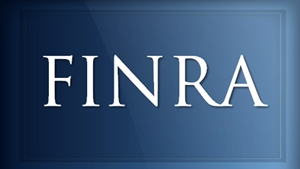 The Financial Industry Regulatory Authority (FINRA) has filed a proposed rule change with the Securities and Exchange Commission (SEC) to expand its brand-new pay-to-play rules to cover capital acquisition brokers (CAB).
The Financial Industry Regulatory Authority (FINRA) has filed a proposed rule change with the Securities and Exchange Commission (SEC) to expand its brand-new pay-to-play rules to cover capital acquisition brokers (CAB).
FINRA Rule 2030, which took effect August 20, restricts contributions made to an official of a government entity being provided investment advisory services or being engaged to provide investment advisory services by certain parties. The rule applies to broker-dealers, placement agents, and covered associates acting on behalf of certain regulated investment advisors or soliciting a government entity to invest in certain pooled investment vehicles. FINRA Rule 4580, which took effect the same day, mandates certain record-keeping requirements concerning related contributions.
A firm meeting the statutory definition of a CAB and electing to be governed by the FINRA rule set would be subject to FINRA’s new pay-to-play rules under the proposal. Specifically, FINRA proposes the addition of rules providing all CABs be subject to FINRA Rules 2030 and 4580. If approved, the effective date will be no later than 30 days after FINRA’s announcement of the SEC’s approval.
February 28, 2017 •
New Jersey Appellate Court Upholds Agency Enforcement of State Pay-to-play Law
The state Appellate Division recently upheld two state agency decisions related to contractor pay-to-play violations. Della Pello Paving, Inc. lost two contracts totaling roughly $7 million and was barred from contracting with the state for the remainder of Gov. Chris […]
 The state Appellate Division recently upheld two state agency decisions related to contractor pay-to-play violations.
The state Appellate Division recently upheld two state agency decisions related to contractor pay-to-play violations.
Della Pello Paving, Inc. lost two contracts totaling roughly $7 million and was barred from contracting with the state for the remainder of Gov. Chris Christie’s second term because it made a $500 contribution to Somerset County Republican Organization.
State pay-to-play laws prohibit a contractor from receiving a contract exceeding $17,500 if it contributed more than $300 during the previous 18 months to a county political party committee.
Della Pello Paving challenged the state agency decisions claiming the contribution was intended for Sheriff Frank Provenzano’s campaign and not for the county political committee. The inadvertent contribution needed to be returned within 30 days to avoid a pay-to-play violation. Della Pello did not request and receive reimbursement until more than a year after making the donation; moreover, Provenzano was not running for re-election the year the contribution was made.
Following the decision of the appellate court, Della Pello’s attorney sought emergency review by the state Supreme Court, but the court refused to hear the case.
February 14, 2017 •
Oregon Lawmakers to Consider Pay-to-Play Bills
Rep. Knute Buehler is set to introduce two bills to restrict pay-to-play politics. House Joint Resolution 17 seeks to amend the Oregon Constitution to ban corporations, nonprofits and labor unions from making contributions to candidates or political action committees. House […]
 Rep. Knute Buehler is set to introduce two bills to restrict pay-to-play politics.
Rep. Knute Buehler is set to introduce two bills to restrict pay-to-play politics.
House Joint Resolution 17 seeks to amend the Oregon Constitution to ban corporations, nonprofits and labor unions from making contributions to candidates or political action committees.
House Bill 2914 would require bidders on state contracts to disclose their five greatest campaign contributions in the state.
If passed, the measures would likely face legal challenges on the basis of free speech restrictions.
January 16, 2017 •
Monday Government Relations News Roundup
Lobbying Florida: “NRA’s Influence with Florida Lawmakers Is Powerful” by Steve Bousquet (Tampa Times) for Bradenton Herald Campaign Finance “Trump Tweet About L. L. Bean Underscores Potential Danger for Brands” by Daniel Victor for The New York Times California: “State […]
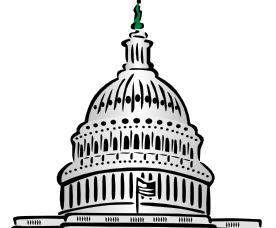 Lobbying
Lobbying
Florida: “NRA’s Influence with Florida Lawmakers Is Powerful” by Steve Bousquet (Tampa Times) for Bradenton Herald
Campaign Finance
“Trump Tweet About L. L. Bean Underscores Potential Danger for Brands” by Daniel Victor for The New York Times
California: “State Watchdog Agency Investigating after Times Report on Political Donations” by Emily Alpert Reyes and David Zahniser for Los Angeles Times
District of Columbia: “In a City Plagued by Pay-to-Play Politics, an Important Decision Looms for D.C.” by Aaron Davis for The Washington Post
Washington: “Lawmakers in Olympia Seek New Campaign-Disclosure and Ethics Rules” by Joseph O’Sullivan for Seattle Times
Ethics
“After Trump Rebuke, Federal Ethics Chief Called to Testify Before House Lawmakers” by Lisa Rein, Tom Hamburger, and Mike DeBonis for The Washington Post
Maryland: “Democrat Michael Vaughn of Prince George’s Resigns from State Legislature” by Ovetta Wiggins for The Washington Post
Montana: “Republican Lawmakers Try to Cut Off Campaign Regulator’s Pay” by Matt Volz (Associated Press) for SF Gate
Tennessee: “House Lawmakers Must Disclose Political Junkets” by Joel Ebert for The Tennessean
Texas: “Top House Republican Says Dark Money Debate Won’t Kill Ethics Reform” by Jay Root for Texas Tribune
January 11, 2017 •
Bills Aim to Reduce Pay-To-Play Politics in D.C.
On Tuesday, January 10, the D.C. Council introduced several bills aimed at limiting big donors’ influence and increasing transparency in campaign fundraising. Citizens have accused Mayor Muriel E. Bowser, a Democrat, of participating in pay-to-play politics. One of the bills […]
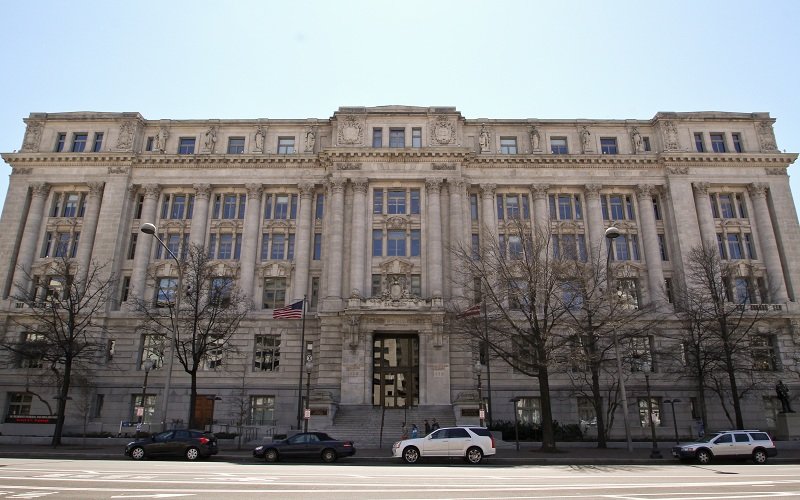
On Tuesday, January 10, the D.C. Council introduced several bills aimed at limiting big donors’ influence and increasing transparency in campaign fundraising. Citizens have accused Mayor Muriel E. Bowser, a Democrat, of participating in pay-to-play politics.
One of the bills introduced would block contractors from city business for two years following a political contribution to a candidate or political committee.
Bill 22-0038 would increase the number of lobbying reports by requiring monthly filings. Currently, reports are due twice a year.
December 27, 2016 •
State and Federal Communications, Inc. Unveils 2017 Online Publications
AKRON, OHIO – State and Federal Communications, Inc., the industry leader in government compliance information and consulting, is debuting its 2017 online publications for government relations professionals. These online publications provide all the information on the myriad regulations and laws […]
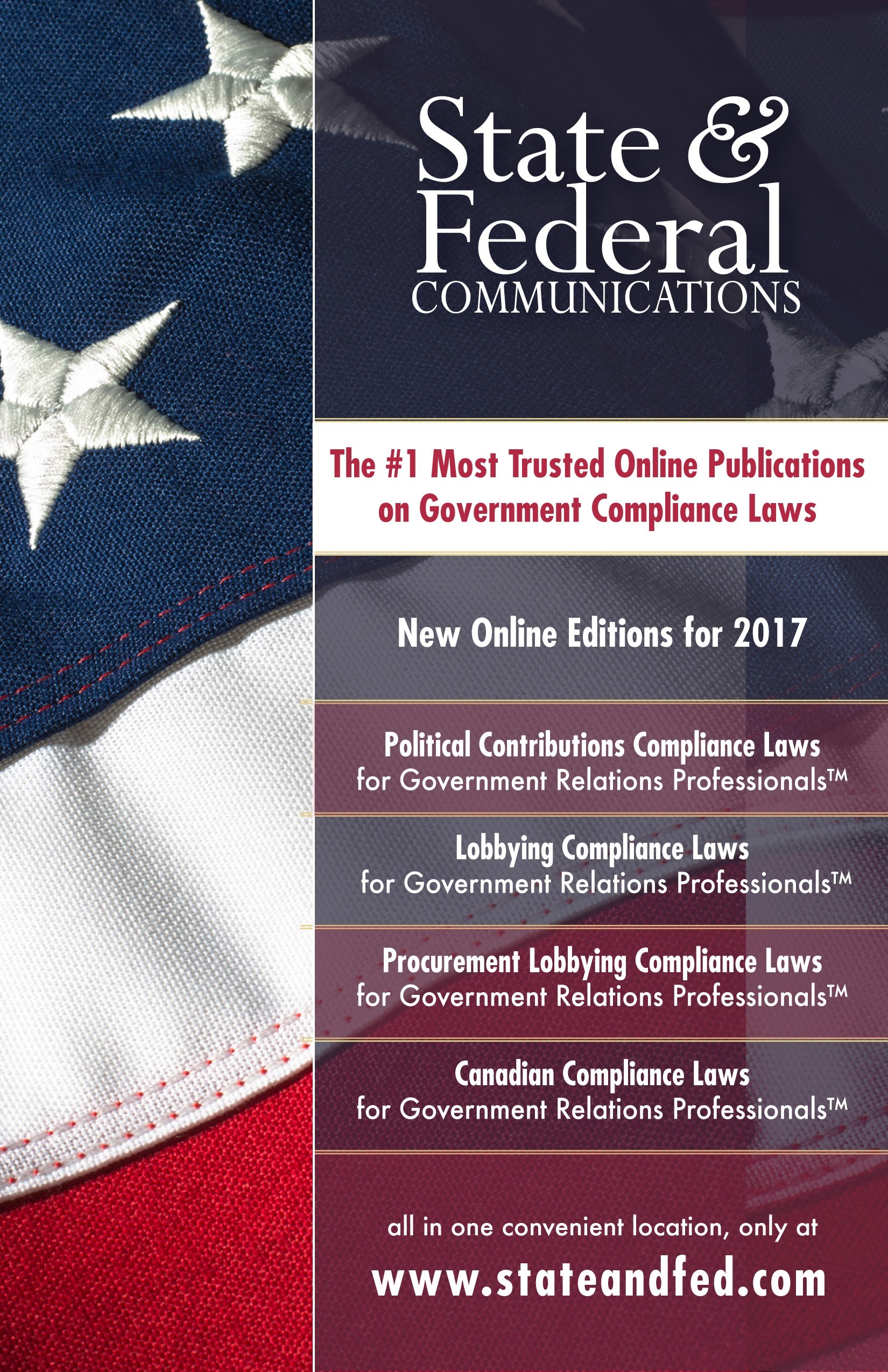 AKRON, OHIO – State and Federal Communications, Inc., the industry leader in government compliance information and consulting, is debuting its 2017 online publications for government relations professionals. These online publications provide all the information on the myriad regulations and laws regarding compliance reporting for political contributions, lobbying, procurement lobbying, and Canadian compliance in one place.
AKRON, OHIO – State and Federal Communications, Inc., the industry leader in government compliance information and consulting, is debuting its 2017 online publications for government relations professionals. These online publications provide all the information on the myriad regulations and laws regarding compliance reporting for political contributions, lobbying, procurement lobbying, and Canadian compliance in one place.
“Our unique online publications are invaluable to government relations professionals,” says Elizabeth Z. Bartz, President and CEO of State and Federal Communications. “They need to know and comply with all the various government laws regarding compliance to do their jobs. We make it easy to decipher and understand compliance regulations and to accurately report activities to government entities as needed.”
The 2017 editions are: Political Contributions Compliance Laws for Government Relations ProfessionalsTM; Lobbying Compliance Laws for Government Relations ProfessionalsTM; Procurement Lobbying Compliance Laws for Government Relations ProfessionalsTM; and Canadian Compliance Laws for Government Relations ProfessionalsTM.
The subscription-based compliance publications provide accurate, comprehensive, and timely information on thousands of rules, regulations, and statutes in over 350 jurisdictions across the United States and Canada. They are optimized for use on any device – computer, tablet, or smartphone – and updated continually so government relations professionals have the most current and accurate information to stay compliant.
Previously known as the “Executive Source Guides,” these four online publications have been renamed to reflect the wide-ranging information they contain. “While these publications were once guides, over the years they have become more comprehensive in their coverage. A new name was needed to reflect the vital content contained inside,” Bartz said.
For more information about the 2017 Online Compliance Publications for Government Relations Professionals, visit stateandfed.com or call 330-761-9960.
December 1, 2016 •
Ontario Passes Campaign Finance Reform Bill
The Election Finances Statute Law Amendment Act was passed by the Legislative Assembly on December 1, 2016. It was introduced after an investigation into pay-to-play fundraising and cash for access scandals. The investigation revealed that corporations and lobbyists had spent […]
 The Election Finances Statute Law Amendment Act was passed by the Legislative Assembly on December 1, 2016. It was introduced after an investigation into pay-to-play fundraising and cash for access scandals.
The Election Finances Statute Law Amendment Act was passed by the Legislative Assembly on December 1, 2016. It was introduced after an investigation into pay-to-play fundraising and cash for access scandals.
The investigation revealed that corporations and lobbyists had spent up to $10,000 to buy time with cabinet members in seeking policy decisions and contracts. The new amendment will prohibit all provincial politicians, candidates, and senior political staffers from attending fundraising events and ban contributions from corporations and unions.
In addition to these prohibitions, donations from individuals are limited to $1,200 per political party annually, down from $9,975 under the current system. Third-parties, who currently face no spending restrictions on advertising, will be capped at $100,000 per election period and $600,000 in the six months before a general election is called. A spending cap will also be placed on political party advertising at $1 million in the six months before a general election is called.
The bill was passed despite negative feedback regarding loopholes in the legislation. It will go into effect on January 1, 2017.
October 28, 2016 •
Canada’s Liberal Party Fundraisers Under Fire
Lobbying Commissioner Karen Shepherd says her office is investigating Liberal Party fundraisers to see if they violate the Lobbying Act. Opposition members of Parliament argue the fundraisers are “pay to play” and violate Prime Minister Justin Trudeau’s ethic guidelines. Conflict […]
 Lobbying Commissioner Karen Shepherd says her office is investigating Liberal Party fundraisers to see if they violate the Lobbying Act.
Lobbying Commissioner Karen Shepherd says her office is investigating Liberal Party fundraisers to see if they violate the Lobbying Act.
Opposition members of Parliament argue the fundraisers are “pay to play” and violate Prime Minister Justin Trudeau’s ethic guidelines.
Conflict of Interest and Ethics Commissioner Mary Dawson stated the fundraisers do not violate the Conflict of Interest Act, but she believes the practice to be unsavory and is calling for changes to Canada’s laws to restrict the practice.
August 25, 2016 •
D.C. Procurement Bill Moves Closer to Becoming Law
On August 18, District of Columbia Mayor Muriel Bowser returned an unsigned bill to reform the District’s procurement processes signaling that it can become effective without her signature. On August 24, the legislation was sent to Congress for the 30-day […]
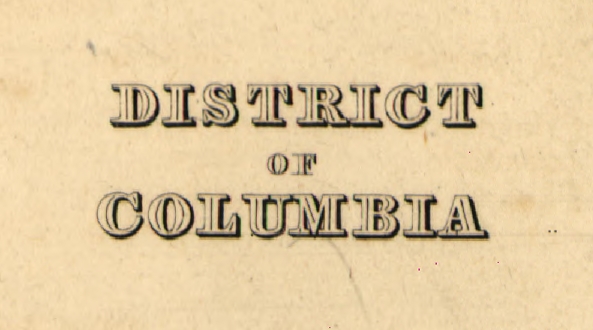 On August 18, District of Columbia Mayor Muriel Bowser returned an unsigned bill to reform the District’s procurement processes signaling that it can become effective without her signature. On August 24, the legislation was sent to Congress for the 30-day congressional review period needed for enactment. The bill will make procedural changes and establish the Office of the Ombudsman for Contracting and Procurement.
On August 18, District of Columbia Mayor Muriel Bowser returned an unsigned bill to reform the District’s procurement processes signaling that it can become effective without her signature. On August 24, the legislation was sent to Congress for the 30-day congressional review period needed for enactment. The bill will make procedural changes and establish the Office of the Ombudsman for Contracting and Procurement.
As introduced, the bill had a pay-to-play provision that banned campaign contributors from bidding on contracts over $100,000 for a year after making a donation to a District candidate. The pay-to-play provision was defeated in a council vote and is not part of the final bill.
August 17, 2016 •
MSRB Rule G-37 Now Includes Municipal Advisors
Effective today, the Municipal Securities Rulemaking Board (MSRB) pay-to-play rule extends to municipal advisors. MSRB Rule G-37 prohibits certain political contributions for two years prior to engaging in a municipal securities business where a related official received contributions. On August […]
 Effective today, the Municipal Securities Rulemaking Board (MSRB) pay-to-play rule extends to municipal advisors. MSRB Rule G-37 prohibits certain political contributions for two years prior to engaging in a municipal securities business where a related official received contributions.
Effective today, the Municipal Securities Rulemaking Board (MSRB) pay-to-play rule extends to municipal advisors. MSRB Rule G-37 prohibits certain political contributions for two years prior to engaging in a municipal securities business where a related official received contributions.
On August 4, the MSRB clarified the two-year look-back ban on contributions from municipal advisors. The MSRB stated contributions by persons who become associated with a dealer, become municipal finance professionals of the dealer, and are affected by today’s amendments to Rule G-37 are subject to the two-year look-back period.
Contributions made in the two years prior to today may subject a dealer to a prohibition on municipal securities business.
August 15, 2016 •
Monday News Roundup
Lobbying “Thought the U.S. Was Divided Already? Just Watch as Elections Go Digital.” by Stephen Ansolabehere for Washington Post California: “Lawmakers Weaken Bill to Ban Behind-the-Scenes Communications at Coastal Commission” by Dan Weikel for Los Angeles Times Campaign Finance Alaska: […]
 Lobbying
Lobbying
“Thought the U.S. Was Divided Already? Just Watch as Elections Go Digital.” by Stephen Ansolabehere for Washington Post
California: “Lawmakers Weaken Bill to Ban Behind-the-Scenes Communications at Coastal Commission” by Dan Weikel for Los Angeles Times
Campaign Finance
Alaska: “Anchorage Rep. LeDoux’s New Fundraising Effort Targets Lobbyists, Bar Owners” by Nathaniel Herz for Alaska Dispatch News
New Jersey: “Voters to Decide on Belmar Pay-to-Play” by Paul Williams for Asbury Park Press
New Mexico: “New Mexico Election Officials Fix Campaign Spending Glitch” by Associated Press for KOB
Ethics
“Criticize Politicians on Twitter? They Might Block You” by Colin Campbell for Raleigh News & Observer
New York: “For Cuomo, Passing Ethics Bill Was Urgent, Signing It Was Not” by David Howard King for Gotham Gazette
Elections
“One Ally Remains Firmly Behind Donald Trump: The N.R.A.” by Nick Corasaniti and Alexander Burns for New York Times
“Hack of Democrats’ Accounts Was Wider Than Believed, Officials Say” by Eric Lichtblau and Eric Schmitt for New York Times
“Is Trump Wrecking Both Parties?” by Thomas Edsall for New York Times
Redistricting
North Carolina: “Federal Judges Find NC Legislative Districts Unconstitutional” by Lynn Bonner for Raleigh News & Observer
August 1, 2016 •
SEC Fights MSRB Rule Challenge by Asserting It Cannot Fight
A Municipal Securities Rulemaking Board (MSRB) pay-to-play rule amendment set to take effect on August 17 is being challenged in federal court. However, the Securities and Exchange Commission (SEC) argues it cannot defend the lawsuit because the Consolidated Appropriations Act […]
 A Municipal Securities Rulemaking Board (MSRB) pay-to-play rule amendment set to take effect on August 17 is being challenged in federal court.
A Municipal Securities Rulemaking Board (MSRB) pay-to-play rule amendment set to take effect on August 17 is being challenged in federal court.
However, the Securities and Exchange Commission (SEC) argues it cannot defend the lawsuit because the Consolidated Appropriations Act of 2016 prohibits the SEC from using federal funding to finalize, issue, or implement any regulation regarding the disclosure of political contributions, contributions to tax-exempt organizations, or dues paid to trade associations.
The SEC argues the same federal restrictions preclude the commission from using funds to defend the MSRB rule on its merits.
The challenge to the amendment is being made in the Sixth Circuit Court of Appeals in Cincinnati. It was brought by the Georgia and Tennessee Republican parties and the New York State Republican Committee.
Currently, MSRB Rule G-37 prohibits certain political contributions for two years prior to engaging in a municipal securities business where a related official received contributions. The amendment extends the pay-to-play rule to municipal advisors.
July 14, 2016 •
Thursday News Roundup
Campaign Finance “Super PAC Spending Becoming More Bipartisan” by Llewellyn Hinkes-Jones for Bloomberg BNA “Koch-Backed ‘Dark Money’ Groups Fined for Failing to Disclose Donors” by John Dunbar for Center for Public Integrity California: “Oakland: Company laundered campaign donations to mayoral, […]
 Campaign Finance
Campaign Finance
“Super PAC Spending Becoming More Bipartisan” by Llewellyn Hinkes-Jones for Bloomberg BNA
“Koch-Backed ‘Dark Money’ Groups Fined for Failing to Disclose Donors” by John Dunbar for Center for Public Integrity
California: “Oakland: Company laundered campaign donations to mayoral, council candidates” by Matthias Gafni for East Bay Times
New Jersey: “Jail for Birdsall Exec in Pay-to-Play Scheme” by Andrew Ford for Asbury Park Press
Ethics
South Carolina: “SC Supreme Court Rules for Pascoe, Against Wilson” by Tim Smith for Greenville News
Tennessee: “Jeremy Durham Had Sexual ‘Interactions’ with 22 Women, Report Says” by Dave Boucher and Joel Ebert for The Tennessean
Elections
“Sidewire: The chatter site for political junkies who haven’t already maxed out” by Ben Terris for Washington Post
“Americans Really Dislike Trump, Clinton. So Why Aren’t Third Parties Doing Better?” by Danielle Kurtzleben for National Public Radio
“Justice Ginsburg Doesn’t Let Up on Trump, Who Fires Back” by Robert Barnes for Washington Post
Florida: “Florida Mosque Is Removed as a Polling Site after Complaints and Threats” by Mary Hui for Washington Post
State and Federal Communications, Inc. provides research and consulting services for government relations professionals on lobbying laws, procurement lobbying laws, political contribution laws in the United States and Canada. Learn more by visiting stateandfed.com.

